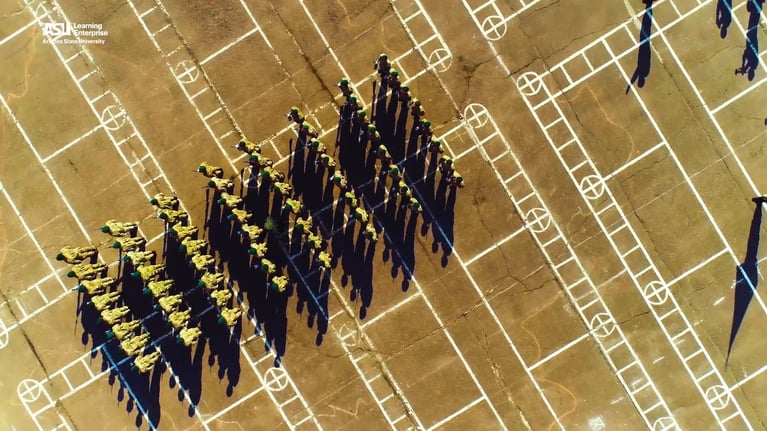ASU Learning Sparks
Fascination With Apocalypse Survival & Environmental Collapse
Why are humans fascinated by the apocalypse and apocalypse survival? Our morbid curiosity stems from our survival instincts and the need to identify and manage threats. At the same time, it is important to gather information about potential dangers to strike a balance between daily life and acknowledging real risks. Rather than endless doom-scrolling on how to survive an apocalypse, the focus should be on how to prepare for emergencies, assist communities, and take action to address threats. By harnessing our morbid curiosity effectively, we can enhance our safety, happiness, and engagement with the world.
Whether we’re up late at night anxiously doom-scrolling or chit-chatting with our friends about the latest threat to human existence, many of us share a morbid fascination with the apocalypse.
Where does this morbid curiosity come from? And why are we so fascinated by the things that could kill us, injure us, or end the world as we know it?
The answer is evolution!
In our evolutionary history, people who ignored threats were more likely to succumb to them, while people who were more attuned to threats - and, critically, what they could do to manage them or reduce the likelihood that they would happen - were more likely to thrive, even in the face of apocalyptic conditions.
Our morbid curiosity goes beyond just turning our attention to potential threats, it can also help us learn about threats and how to effectively manage them so we can continue to go about our lives.
We can look to the animal world to see a really clear example of this. It is not unusual to see prey approaching predators - a phenomenon called predator inspection.
Just like the horror movie protagonist who opens the door to the basement to see what kind of monster is lurking in the darkness, a gazelle will approach a lion to gather information about what kind of threat it poses. Does it seem hungry? Or is it just lazing in the sun after eating a hearty meal of wildebeest? If it doesn’t pose a threat, the gazelle can safely graze or go about her other activities without worry. And if it does pose a threat, the gazelle can get the frick out of there.
We are all kind of like this gazelle, trying to learn about the threats in our world so that we can manage them. We need information about the threats we are facing so that we can balance the need to go about our lives with taking seriously the real risks that are out there.
Unfortunately, in our modern world, it can be really hard to figure out what threats are immediate and acute - like a prowling hungry lion - what threats are looming - like a sated lounging lion - and what things are not actually threats at all - not a lion, just a little breeze in the tall grass.
We can get stuck in an infinite doom-scrolling loop, our morbid curiosity driving us to learn more about ambiguous threats without ever giving us real resolution about whether they are really threats or direction about what we should do about them.
But there are many things we can do. We make sure that we prepare for the kinds of emergencies that are common in our region - whether that’s wildfires, earthquakes, floods, or extreme heat. We can also help our neighbors, friends and communities prepare.
And how about beating that infinite anxiety-inducing doom-scrolling? Moving to action to prepare yourself or do something to help manage the risk we all face is a great way to stop that infinite doom-scroll.
So prep your shelter-in-place kit, help your community build an effective emergency response plan, or donate to a charity that is working to reduce the risk from the potential apocalypse that is taking over your brains this week. If we can leverage our morbid curiosity to learn about the threats we face and to do something about them, we’ll all be safer, happier, and more engaged in our world.
So let’s advance the plotline of this great human adventure story that we are all a part of and open that door to our collective basement and peer in, armed not with our powers of doom-scrolling, but rather with the intentional deployment of our morbid curiosity.
If we work together to learn about the threats in our world and to deal with them effectively, we’ll get through. We come from a long line of morbidly curious and apocalyptically cooperative humans, so we have what it takes.


